Australia’s version of The Office needs to knock off for the day
It seems like the work of an amateur suburban theatre group: too contrived, too set-up, too much ‘big’ acting.
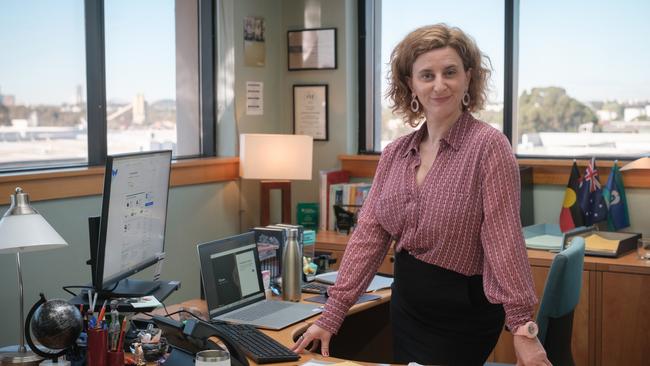
For the committed TV watcher, interested not merely in the content of shows but the creative engineering that creates them, the study of formats is worthy of some attention, driving some of us back to the originals when we discover that a new show is actually derived from something else.
The formatting of shows, once at the outskirts of the industry, and their constant originalising, new versions adapted across borders as it were, is relatively new. And the process finds enormous currency in the new millennium, and not just factual series either, such as The Voice, Dancing With the Stars, or the Masked Singer, but also fictional.
The best of these conjure a sense of the original but also offer a fresh assessment and, if possible, correct and improve on the shortcomings of the original series.
But reboots or remakes, sometimes called “reimaginings” – an expression loved in format land – of fictional programs have always been difficult to get away with in foreign countries. New scriptwriters, sets and actors are required to make them culturally relevant and in a completely different market and cultural context.
The trick is to extract the kind of essential integrity out of the original show and dress it with the idiosyncrasies and colour of local culture somehow, and give it the right spin to make it feel homegrown and natural.
But as critic Eric Deggans says, “Sometimes, even with the best development and intentions, recreating a TV classic is like trying to catch lightning in a bottle for a second time – a longshot that won’t yield the dividends you expect, even when you get it mostly right.”
All this palaver brings us to The Office and its latest iteration, the so-called Australian version of the hugely successful American version of the British original created by Ricky Gervais and Stephen Merchant.
The British version of The Office, which followed the tribulations of the long-suffering employees at a regional paper merchant and their unprofessional buffoonish boss, Ricky Gervais’s David Brent, started in 2001 and ran for two short seasons. During its run, it managed to kill off the traditional British studio sitcom, and the ubiquitous laugh track, though initially some critics loathed it.
Much to the concern of UK Office fans, the series was later adapted into the American version by Greg Daniels, the debate as to which is the best show seemingly endless. It still goes on. The US version premiered in 2005, ran nine seasons, and gave viewers an impressive 201 episodes.
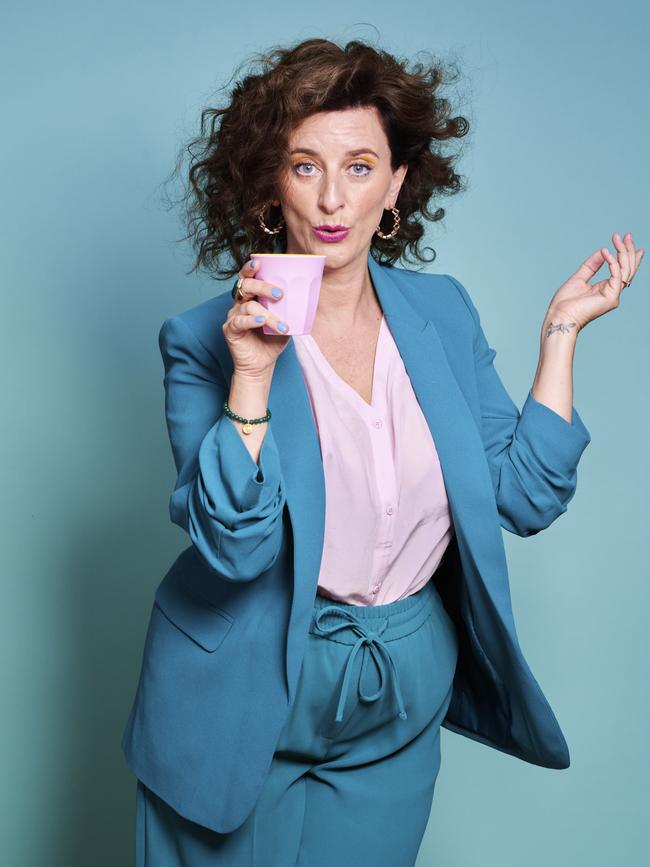
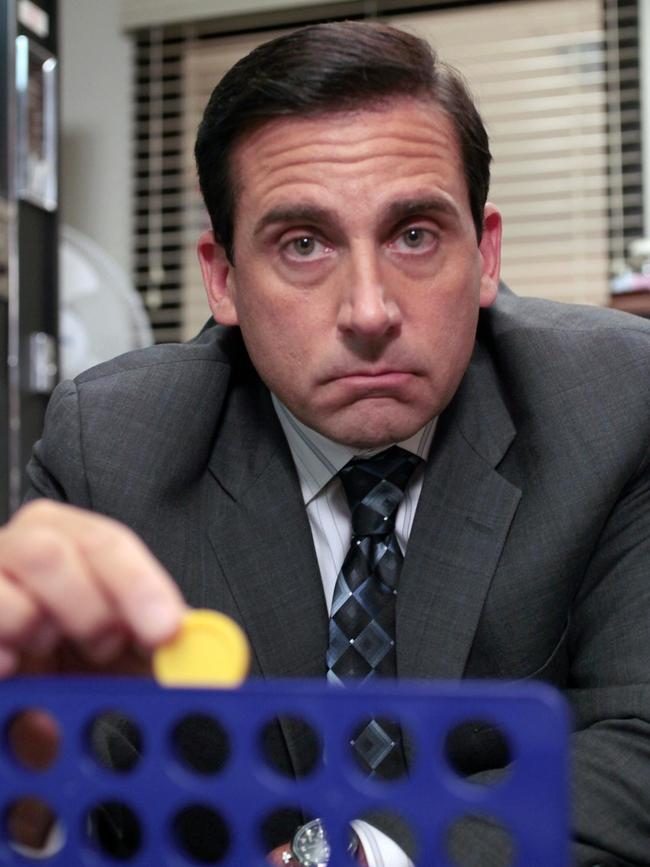
It’s been remade more than a dozen times in many different languages, in countries as diverse as Germany, Israel, Finland and Saudi Arabia. The Australian version is the third English-language iteration.
Merchant compares The Office to Frankenstein’s monster. “We kind of created this thing in the lab and it went off and rampaged around the world on its own without us.”
The Australian version most closely resembles the US show, which follows of course the daily interactions of a group of disgruntled, highly idiosyncratic employees. They work at paper company Dunder Mifflin’s Scranton branch, somehow presided over by Steve Carrell’s complex, hapless manager Michael Scott.
This US show carries more light and shade than the dispirited original as its complicated characters bounce off each other in ways that are sometimes surprisingly revelatory. Few spin-offs have honoured the original with such integrity while working so intelligently on their own terms.
I can still recall the classic meeting of Carrell’s Michael Scott and Gervais’s David Brent, the character on whom he was loosely based.
It’s a classic scene, short, sweet and funny, played at breathless pace with a kind of edgy, one-take spontaneity.
At the episode’s start, the imperturbable Scott waits for a lift to open and out walks the wary, sandpaper-voiced David Brent. After realising David is English, Michael, always keen to impress with his comedic skills – the office clown – tells him about an English character he came up with called Reginald Poofter. And they immediately begin to tell each other racist jokes about the characteristics of British and Chinese people.
When David mischievously points out the politically incorrect nature of their joking, Michael corrects him saying it’s just comedy, and David agrees, saying “Comedy is a place where the mind goes to tickle itself”. Then he adds Michael’s favourite catch phrase, “That’s what she said.”
It’s clever, a little confronting, and underplayed. Carrell’s Michael Scott easily holds his comedic own with the other great character created by Gervais, who seems delighted with both creations. It’s tricky and clever – one tragic clown jousting with another – each created by the same person.
There’s nothing like this in Amazon Prime’s Australian version, which is forced, peculiarly stylised and not very funny. It plays a bit like an amateur suburban theatre group doing their own version on The Office. It’s too contrived, too set-up, the actors doing what directors call “big acting”, signalling emotion in such a way that it’s impossible to forget they are acting. It manages to take Gervais’s comedy of awkwardness to a new level of, well, awkwardness.
It’s also weirdly full of New Zealand actors – their accents are oddly indeterminate, along with their talent, though it’s not their fault they appear so gauche.
The writer, executive producer and set-up director, Jackie van Beek, also happens to be a Kiwi and obviously has a thing for broad comedy.
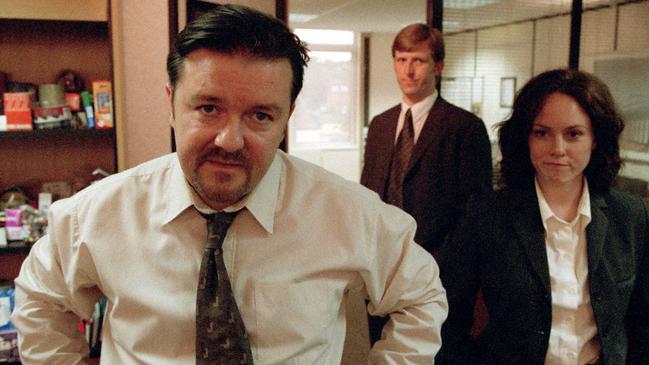
In the local version, the Steve Carell figure, Hannah Howard, is played by stand-up comic Felicity Ward. She’s the boss of the Sydney branch of Flinley Craddick, an Aussie-based packaging company (its slogan, “Think inside the box”). She loves her job and loves those with whom she works. She thinks of them even as she wakes up in the morning, excited with “that tingly feeling in my chest” as she thinks of the day ahead.
But in the first episode she’s faced with a dilemma as soon as she arrives at work. Head Office is calling all its employees back to the office to increase productivity numbers. Full-time attendance is now mandated to prevent the “life sentence of home detention and solitary confinement”.
Like any good manager she has her own explanation to justify the management’s line. “Coming back full-time might not appeal to everyone at first,” she muses. “It’s like they’ve been invited to a party they don’t want to go to, but then they get there and they’re like I’m having the best time.”
That’s the good part, the bad part is that Head Office also has Hannah’s branch in its sights and may close it down. So she appoints her callow underling (too obviously the Dwight Schrute figure) Lizzie, played a little like a panto dame by New Zealander Edith Poor, as her second in command to sort things out. “I like a challenge,” Lizzie says. “It gives me something to fight for.” She decides to sell the office chairs on the internet and force her colleagues to stand up as they pursue their duties. It’s all rather silly; the plausibility is not helped by Poor’s exaggerated performance.
But more overstated is Ward’s Hannah Howard, who screeches, cackles and claws her way to a performance.
Van Beek says she was asked by Amazon for a show closer to the warmer American one than the more sardonic British. This, it seems, puzzled her as a New Zealander, she told The Post, adding she was worried local humour was more aligned with the meaner British kind. “I find as a culture, creatively, we’re slightly darker, we’re slightly edgier, we’re slightly more repressed, more deadpan, more cynical,” she said.
Australians, she said, were more like the Americans when it comes to humour, with “a bouncier, more lean forward” quality. “So I had to be very conscious not to lean too much into my Kiwi-ness, and to try and focus my writing and directing on that slightly less cynical, less dark side.”
Well, it hasn’t really worked, and if the new The Office continues into a second season everyone should be forced to watch Rob Sitch’s brilliant Utopia, also a workplace comedy, a few times.
The Office is streaming on Amazon Prime.


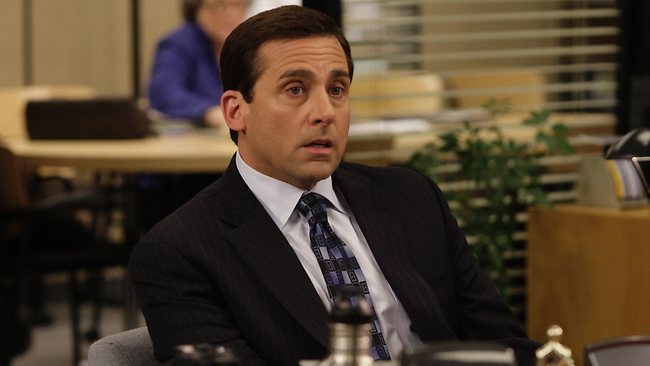


To join the conversation, please log in. Don't have an account? Register
Join the conversation, you are commenting as Logout